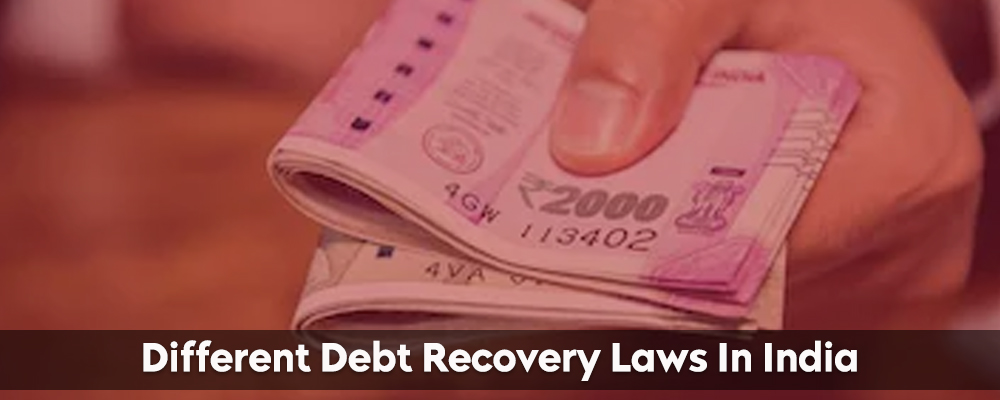There are several laws in India that deal with money recovery. These laws provide a legal framework for creditors to recover debts from debtors. Here are the different laws that govern money recovery in India:
Negotiable Instruments Act, 1881
This law deals with the recovery of money through negotiable instruments such as cheques, promissory notes, and bills of exchange. If a debtor fails to pay the amount mentioned in the negotiable instrument, the creditor can take legal action under this act. The creditor can file a case in court and seek a judgement against the debtor. If the judgement is in favour of the creditor, the court can issue a warrant for the debtor’s arrest and order the seizure of the debtor’s property to recover the debt.
Need A Legal Advice
The internet is not a lawyer and neither are you. Talk to a real lawyer about your legal issue

Act of 1993 Recovering Debts Owed to Banks and Financial Institutions
This law gives banks and other financial organisations a way to recoup unpaid debts and loans. The creditor can file an application with the Debt Recovery Tribunal (DRT) under this act. The DRT can issue a recovery certificate to recover the debt from the debtor’s property. If the debtor fails to pay the debt, the creditor can take legal action to seize the debtor’s property.
Securitization and Reconstruction of Financial Assets and Enforcement of Security Interest Act, 2002
This law allows banks and financial institutions to recover unpaid loans by seizing and selling the debtor’s property that was used as collateral for the loan. The creditor can take possession of the property and sell it to recover the unpaid loan amount. This law also establishes a Debts Recovery Tribunal to adjudicate disputes related to the recovery of debts.
Insolvency and Bankruptcy Code, 2016
This law provides a legal framework for the insolvency and bankruptcy of individuals and corporate entities. If a debtor is unable to pay its debts, the creditor can file a case under this law. The court can appoint an insolvency professional to manage the debtor’s assets and liabilities. The insolvency professional can sell the debtor’s assets to recover the unpaid debt amount.
Consumer Protection Act, 1986
This law provides a mechanism for consumers to file complaints against suppliers of goods and services for deficiency in service or defective products. If a consumer has paid for goods or services that were not provided or were defective, the consumer can file a complaint under this act. The consumer can seek compensation for the loss suffered due to the deficiency in service or defective product.
Limitation Act, 1963
This law sets a time limit for creditors to file cases to recover unpaid debts. The time limit varies depending on the nature of the debt and the type of case filed. If a creditor fails to file a case within the time limit, the debt becomes time-barred, and the creditor cannot recover the debt through legal means
These are the different types of debt recovery methods where the person whose money is not recovered can approach to the court and get their issue resolved, person in need having any issue related to debt recovery can approach to Lead India where he/she can hire best of the debt recovery advocates in delhi, best of the debt recovery advocates in UP, best of the debt recovery advocates in Mumbai, best of the debt recovery advocates in Patna and so on they can also ask the free question, Talk to lawyers or get legal advice by best of our experts.





 Talk to a Lawyer
Talk to a Lawyer